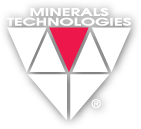Sediment Remediation
From Capping to ISS
As attention turns toward contaminated sediment remediation, traditional remediation methods, such as dredging and sand caps, provide widely varying results due to many environmental, operational, and economic factors. CETCO offers more efficient and effective sediment capping solutions as well as in situ options.
Better products for better results.

Sediment capping
Active capping continues to offer many advantages that can be tailored to each specific application, including both partial and full sediment capping. Sediment capping involves the sub-aqueous placement of a barrier layer of material over contaminated sediment. Sediment capping reduces the potential for contaminant exposure by preventing re-suspension and transport to other non-affected areas.
Problems that exist with traditional methods include:
- Consistency of protection
- Accuracy of mass removal techniques
- Effect of mass removal upon downstream areas
- Composition of treatable contaminants
- Space considerations of traditional sand caps
- Complexity of sub-aqueous installation
- Cost of dredging
- Cost of disposal of dredged materials
CETCO offers:
- Reactive capping media available in either bulk or as a reactive mat allowing for wider variety of applications.
- Combinations of reactive core materials allow for a wide range of treatable contaminants.
- Adsorptive capacity reduces required cap thickness, thus increasing navigable depth when compared to traditional methods.
- Composite layer stabilizes sediments, minimizing re-suspension and reducing downstream impact.
- Consistent sheet size allows for highly accurate placement and maximum coverage.
- Product properties ensure verifiable coverage of sediments due to fully contained, defined mass per area of reactive material.
- Reduces multi-step dredging process into fast, easily adjustable, consistent installation.
- Reductions in volume of fill material needed combined with speed of installation offer significant economic benefit.
Customized in situ treatment solutions
In situ stabilization allows for treatment of the contaminated sediments in place, reducing contaminant leaching into nearby water sources. Treating contaminated sediments on-site alleviates off-site transportation and disposal concerns and conserves landfill capacity, replacement fill, and fuel used in transportation.
The bottom line
The advantages of CETCO sediment remediation solutions include:
- Better consistency of protection
- No inaccuracy of mass removal techniques
- Eliminates effects of mass removal upon downstream areas
- Requires less space than traditional sand caps
- Lower cost alternative to dredging and disposal
Technical expertise and design assistance
Many factors go into the decision for a remedial design of contaminated sediments. CETCO can assist engineers with design evaluations and provide technical assistance with modeling cap life or potential stabilization or solidification mix designs. Regardless of the remedy, our technical team is able to assist.
- Case Study: BENTOMAT® AS GCL as Embankment Liner for Zaragoza, Spain High Speed Railroad 1589 KB
- Case Study: Cordoba Spain High Speed Railroad Embankment Liner - BENTOMAT® AS GCL 1184 KB
- Case Study: New Jersey Brownfield Redevelopment - BENTOMAT® SDN GCL 830 KB
- Case Study: PCBs and PAHs Contaminated Stormwater Ditch 834 KB





